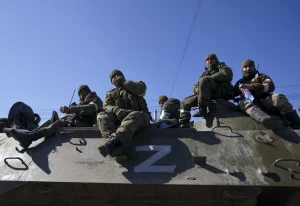
European Commission urges to stop border blockade at checkpoints with Poland
The Yahodyn-Dorohusk checkpoint on the Ukraine-Poland border has been greenlit for reopening by the European Commission. Additionally, the Commission has emphasized the need for swift opening of the remaining checkpoints
This information is reported by European Pravda, citing a statement from EU Commissioner Adina Vălean. Espreso has also covered this development.
"We remain concerned about the continued blockage of three other border crossing points between Poland and Ukraine," she expressed.
She emphasized the importance of relevant national and local authorities taking necessary actions to facilitate the movement of goods across the EU's external borders.
"I urge all parties to collaborate with the European Commission to implement measures that enhance the efficiency of border crossing points and ensure the proper application of the Agreement on road transport between Ukraine and the EU," she added.
While congratulating the unblocking of the Yahodyn-Dorohusk checkpoint, the European Commissioner acknowledged the significant consequences of its blockade since November 6 for Ukraine, Poland, and the EU. She highlighted the impact on all drivers caught in the blockade.
"I want to remind all involved parties of the harm these protests cause to the European economy, supply chains, other road operators, and Ukraine, a country at war. The remaining border crossing points must be unblocked without delay," Vălean concluded.
Strikes on the border between Poland and Ukraine
Strikes have erupted on the Poland-Ukraine border due to increased competition following the opening of international transportation between Ukraine and EU nations. To address this, the Ministry for Communities, Territories and Infrastructure Development initiated talks with Poland and the European Commission.
Responding to the potential border blockage, the State Border Guard Service provided comments, and Ukraine formally communicated its concerns to Poland regarding the planned strike by Polish carriers at the Ukrainian-Polish border.
On November 6, Polish carriers initiated a strike at the border. The Ministry of Infrastructure noted that no official demands had been submitted by the Polish carriers to Kyiv.
By the evening of November 7, Polish carriers had fully halted the movement of cargo vehicles at two border checkpoints with Ukraine.
According to Volodymyr Balin, vice president of the Association of International Road Carriers, Polish carriers are violating the terms of the strike, which could help to get it called off. At the same time, the Ukrainian economy has already suffered losses of more than €400 million.
Meanwhile, the Polish government has called on Ukraine to cancel the e-queue registration for empty trucks. Poland’s Minister of Agriculture also met with the protesters and offered them a compromise solution.
On December 4, the EU Transport, Telecommunications and Energy Council (TTE) will discuss the situation with the blockade on the Polish-Ukrainian border.
Meanwhile, the Polish government has called on Ukraine to cancel the e-queue registration for empty trucks. Poland’s Minister of Agriculture also met with the protesters and offered them a compromise solution.
On December 1, the blocked Ukrainian drivers at the Polish border held talks with the consul. On December 4, the Uhryniv-Dolhobyczów border crossing point opened to empty trucks.
As a result of the protesters' blocking of the border with Ukraine, exports through these checkpoints decreased by 40%, and the state budget of Ukraine lost UAH 9.3 billion due to a shortfall in customs payments.
Later it became known that the trucks blocked on the border with Poland would be returned to Ukraine by rail. On the evening of December 7, Ukrainian Railways sent the first container train with trucks to Poland, consisting of 23 platforms with 13 loaded tractors and semi-trailers
- News












































